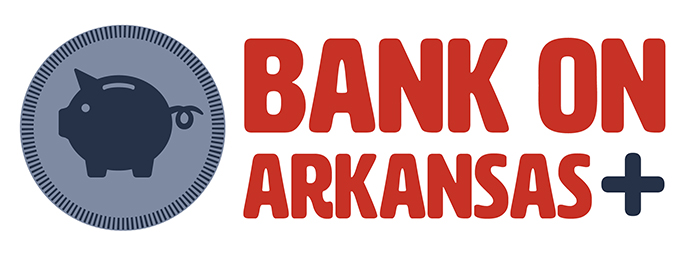UA Little Rock to partner with coalition working to expand access to banking in underserved communities
The University of Arkansas at Little Rock is partnering with Bank On Arkansas+ to help ensure that underserved Arkansans have access to banking options that help improve their financial outlook.
One in 10 Arkansas households does not have a bank account. Of those that do, over 22 percent rely on costly services to access their own money or cover monthly basics like rent, utilities, food, and medicine—paying more to just get by.
Recognizing that these individuals often fall victim to high-risk, costly financial situations that trap them in a cycle of debt, dependency, and potential poverty, the Arkansas Asset Funders Network seeded a coalition to address these issues.
Bank On Arkansas+ is a partnership among financial institutions and community organizations to promote accounts that are free or low-cost and have no to low opening deposit requirements and no overdraft fees.
According to the Federal Deposit Insurance Corporation, the No. 1 reason people do not have a bank account is that they believe they “don’t have enough money” to open and maintain an account. This concern is sometimes compounded by the fear of encountering high and unpredictable fees, including overdraft fees.
Bank On Arkansas+ will officially launch on Nov. 1 with a media event at the University of Arkansas at Little Rock. On Friday, Nov. 2, and Saturday, Nov. 3, local community events will take place around the state to highlight financial services and partners in specific communities.
“The University of Arkansas at Little Rock is pleased to be included in the coalition of partners supporting the mission of the Arkansas Asset Funders Network’s Bank On Arkansas+ initiative,” said Dr. Andrew Rogerson, chancellor of UA Little Rock. “I applaud their efforts to serve the unbanked and underbanked in promoting financial literacy and relationship building with trusted financial institutions and community partners. Our missions are aligned in our intention to elevate lives through education.”
Currently, six financial institutions in Arkansas have nationally certified Bank On accounts: Bank of America, Diamond Lakes Federal Credit Union, IBERIABANK, Southern Bancorp, U.S. Bank, and Wells Fargo. Others are in the process of having their accounts certified—Citizens Bank, First Community Bank, First Security Bank, and Simmons Bank.
Recognizing that bank accounts are just a first step in helping people become more financially stable, the Bank On Arkansas+ initiative is working with “Plus Partners” that can offer additional services such as financial education and coaching, credit building, debt repair, micro loans, and small business development.
“Financial capability services are designed to help people solve issues, build relationships with financial institutions, and grow their wealth,” said Alden Napier, executive director of Credit Counseling of Arkansas. “We want to help the single mom who needs to save money on her car payments by improving her credit score. We want to help the college graduate create a plan for repaying his student loans as he begins his first job. It takes partnerships between financial institutions and financial capability providers to help our neighbors build a brighter financial future.”
Bank On Arkansas+ is supported by sponsorships from Arvest Bank, Carl B. and Florence E. King Foundation, Cities for Financial Empowerment Fund, Entergy Arkansas, First Security Bank, IBERIABANK, Regions Bank, and Southern Bancorp.
The coalition is continually accepting partnership opportunities from financial institutions, nonprofits, and other organizations that want to engage in the initiative. To request more information, email Stephanie Matthews, director of Bank On Arkansas+, at stephanie@assetfunders.org.
Bank On Arkansas+ is a special project of the Arkansas Asset Funders Network. Arkansas AFN is a regional chapter of grantmakers who invest in opportunities for low- and middle-income individuals and families to build economic well-being. Members include private, public, corporate, and community foundations, public-sector funders, and financial institutions who want to help Arkansans secure economic stability, for now and for years to come. For more information, visit www.assetfunders.org.
